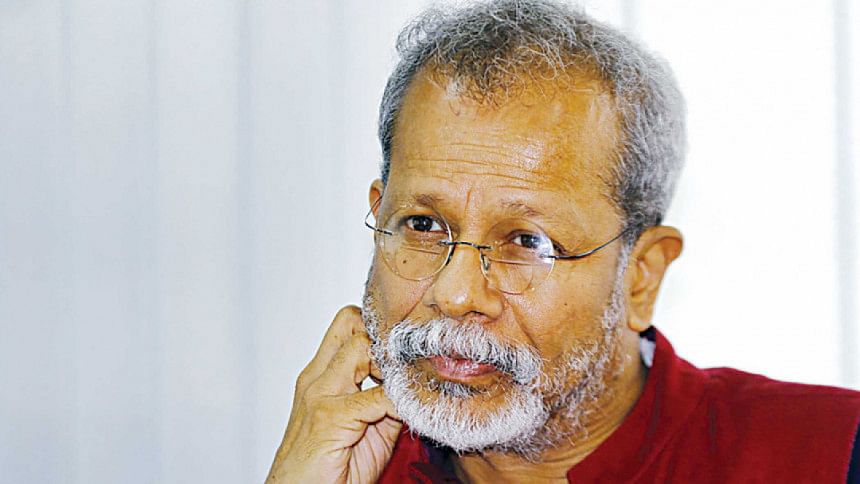‘Killing in Rohingya camps, repatriation two separate issues’

It can be understood that a force is trying to create a negative image of the Rohingya and posing obstacles so that effective leadership cannot be formed.
Myanmar is still a big force standing in the way of effective Rohingya leadership, and international communities including the UN should play a significant role in fostering strong Rohingya leaders, said Dhaka University's International Relations professor Imtiaz Ahmed.
In an interview with The Daily Star, he proposed that leadership should come from various people, including those living in the diaspora.
The international relations expert argued killing and criminal activities in the Rohingya camps in Cox's Bazar and repatriation are two separate issues.
"Repatriation is largely dependent on the Myanmar government. Whether the Rohingyas have a leader is not the main factor affecting repatriation," said Prof Ahmed.
"In the 1970s and 90s, we saw Rohingya influxes and there were no significant leaders at the time. Repatriation does not depend on who will go and who will not go," he added.
Regarding the recent killings in Rohingya camps, Ahmed said the international community relied too heavily on a single leader instead of encouraging multiple leaders.
"It is easy to target a single leader. I think the role of the international community was wrong in this regard," he said.
The IR professor said instead of a single leader, leadership ought to come from various sections of the Rohingya, including people living in the UK, US, Australia, Japan and elsewhere.
"But we don't see any such initiative from the international community to organise them," he added.
Regarding the presence of militant organisation Arakan Rohingya Salvation Army (ARSA), Prof Ahmed said there might be a presence of ARSA in the Rohingya camps in Cox's Bazar but it is not clear who created the organisation.
"Myanmar military has been spreading propaganda against ARSA for a long time, but we don't know whether that ARSA has any connection with Rohingyas living in the camps," he said.
"If ARSA does not serve the interests of the Rohingyas, then why does the name of this organisation come up again and again, particularly in relation to criminal activities?" he asked.
The association of ARSA with all criminal activities has created a negative image of Rohingyas, he argued. "It can be understood that a force is trying to create a negative image of the Rohingya and posing obstacles so that effective leadership cannot be formed."

Regarding the role of the international community apart from the UN to resolve the Rohingya crisis, Prof Ahmed said China, Japan and India are the "big friends" of Myanmar.
To resolve the issue, India and Japan can play a big role in keeping their business and geopolitical interests aside.
"They can do their business but the Rohingya issue should be settled separately."
On the issue of drug trade, he said it is unclear why the international community is not putting pressure on Myanmar to put a stop to such activities.
Prof Ahmed said Rohingyas need to check the internal clashes but if the clashes take place centring drug and if Myanmar does it intentionally, the UNODC can play a big role.
"The Rohingya population living in Cox's Bazar is bigger than the population of Bhutan and almost double that of the Maldives. In any society, such incidents are bound to happen but we have to be mindful that such incidents are not repeated," Ahmed said.

 For all latest news, follow The Daily Star's Google News channel.
For all latest news, follow The Daily Star's Google News channel. 




Comments